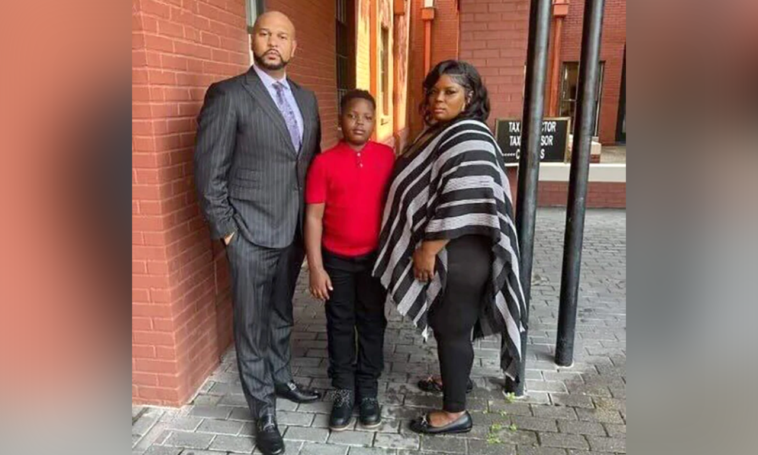- Quantavious Eason, a 10-year-old Black child sentenced to three months of probation and a book report for public urination,’s mother, Latonya, refuses to sign the probation agreement. Carlos Moore, the family’s attorney, said they want the boy’s charges dropped.
“We cannot in good conscience accept a probation agreement that treats a 10-year-old child as a criminal.” Carlos Moore.
According to attorney Carlos Moore, the family strongly opposes probation terms that portray a 10-year-old child as a criminal. The terms were unsuitable for a minor and resembled adult sentences, including weapon restrictions and drug tests.
Latonya Eason, Quantavious’s mother, pondered signing the agreement to avoid prosecutors’ threat of escalation. She declined after carefully reviewing the terms. Attorney Carlos Moore stressed their determination to contest the terms, saying they are not in the young client’s best interest.
The child’s probation included an 8 p.m. curfew when Tate County Youth Court Judge Rusty Harlow sentenced him on December 12. The family was concerned about the curfew’s suitability for a 10-year-old because it would have been in force over Christmas.
Quantavious Eason was arrested on August 10 after urinating behind his mother’s car when she visited a lawyer in Senatobia, Mississippi. About 8,100 people live in Senatobia, where police arrested the child for public urinating. Senatobia Police Chief Richard Chandler said the officers breached their child-related training. At least one cop was “no longer employed,” and others were disciplined.
Moore petitioned the Tate County Youth Court to dismiss or try the case due to the family’s refusal to sign the probation agreement. The family plans to contest Quantavious Eason’s charges at a January 16 hearing.
Latonya Eason, mother of 10-year-old Quantavious Eason, refused to sign his probation deal, sparking a debate regarding juvenile justice. A seemingly trivial public urinating has raised questions about assigning adult probation terms on a youngster.
According to Eason family attorney Carlos Moore, Quantavious’s terms were not in the best interests of a 10-year-old. The use of adult-like phrases like firearm limits and drug tests sparked doubts about their suitability for the young youngster.
The probation arrangement was further disputed by Quantavious’s 8 p.m. curfew, especially during Christmas. Advocates worry that curfew restrictions like those on adult offenders may harm a child’s mental health.
Quantavious Eason was arrested on August 10 after urinating behind his mother’s car when she visited a lawyer in Senatobia, Mississippi. The arrest and prosecution highlighted law enforcement’s disproportionate approach to a minor, non-violent kid offence.
Senatobia Police Chief Richard Chandler said the arresting police violated child-related regulations. One officer was fired after admitting this violation, while others were disciplined. The incident showed that law enforcement must be properly trained to handle minors without escalation.
Family’s choice to dispute probation terms and seek dismissal of charges shows a rising belief that juvenile criminals should be treated age-appropriately. Attorney Carlos Moore’s request to dismiss or continue to trial reflects a larger effort to rectify legal disparities in child treatment.
The case encourages a reevaluation of probationary procedures for juveniles, questioning whether adult-centric terms are appropriate. Advocates may use the January 16 hearing to urge for a more nuanced and child-centered juvenile justice system.





Join the Community and Be a Part of the Conversation
You must be logged in or registered to post a comment.